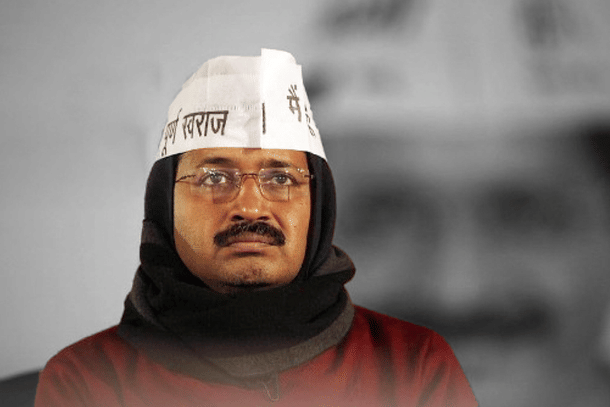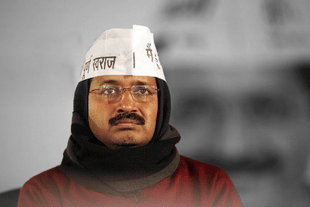News Brief
Arvind Kejriwal Responds To EC Notice, Defends Water 'Poisoning' Remarks As ‘Legitimate Civic Concern’
Kuldeep Negi
Jan 30, 2025, 02:47 PM | Updated 02:47 PM IST
Save & read from anywhere!
Bookmark stories for easy access on any device or the Swarajya app.


Aam Aadmi Party (AAP) chief Arvind Kejriwal on Wednesday clarified that his statements regarding the quality of Yamuna water were meant to bring attention to a “legitimate civic concern", India Today reported.
His remarks came in response to a notice from the Election Commission (EC), which had sought evidence for his allegation that Haryana was mixing "poison" into the Yamuna to disrupt water supply to Delhi.
Kejriwal stated that his comments were made in light of an “urgent and alarming public health crisis” concerning the deteriorating quality of drinking water in Delhi".
He emphasised that Delhi relies on Haryana for its raw water supply and that his remarks were intended to highlight the “severe toxicity and contamination of raw water received from Haryana."
He claimed that the raw water received from Haryana is highly contaminated and poisonous and the "contamination are so extreme that the Water Treatment Plants (WTPs) in Delhi are unable to process it to bring it within safe limits".
"Such toxic water if is allowed to be consumed by human population the same would lead to grave health hazard and fatality," the AAP chief said.
Kejriwal contended that his statements should not be construed as attempts to “incite enmity between different groups” or as being prejudicial to national unity.
He also clarified that his statements regarding the Yamuna water quality were based on a letter issued by the CEO of the Delhi Jal Board on 27 January.
"The letter itself admits that the levels of ammonia in the water coming to Delhi from Haryana has increased manifold, in as much as, it has reached to the level of 6.5-7 ppm," Arvind Kejriwal said.
He referenced another section of the Delhi Jal Board CEO’s letter, which attributed the rise in ammonia levels in the Yamuna to the discharge of untreated sewage or industrial waste upstream of Wazirabad Barrage.
In his reply to the Election Commission, Kejriwal stressed the potential health risks posed by excessive ammonia levels in drinking water.
He maintained that his statements did not breach the Model Code of Conduct, arguing that they were “fully protected under the constitutional guarantee of freedom of speech and expression.”
"It is impermissible, both legally and constitutionally, to criminalise the act of highlighting governmental lapses in ensuring the availability of safe water for the residents of Delhi," he added.
During an election rally on 27 January, Kejriwal accused the BJP government in Haryana of poisoning the water.
“Nothing is a bigger sin than depriving people of water. The BJP is trying to leave the people of Delhi thirsty for its dirty politics. They are mixing poison in the water being sent from Haryana,” Kejriwal said.
"This contaminated water is so toxic that it cannot be treated by the water treatment plants present in Delhi. The BJP wants to commit mass murder of Delhi residents. We will not let this happen," he added.
His remarks sparked strong reactions from both the BJP and Congress, who challenged the authenticity of his claims.
Following this, the Election Commission served Kejriwal with a notice, instructing him to substantiate his claims with factual evidence. The deadline for his response was set for 8 pm on Wednesday.
Kuldeep is Senior Editor (Newsroom) at Swarajya. He tweets at @kaydnegi.





